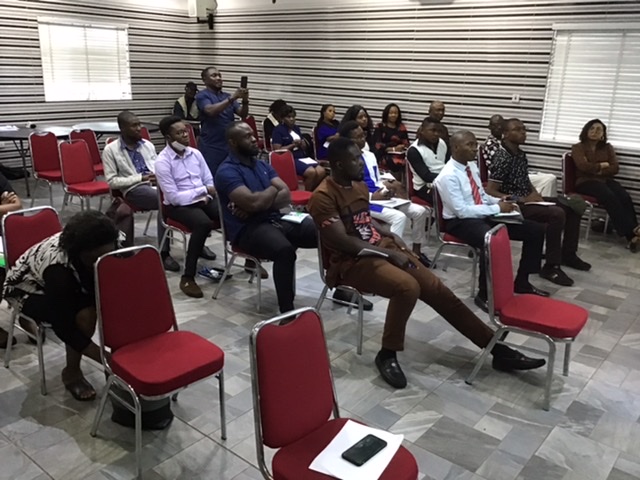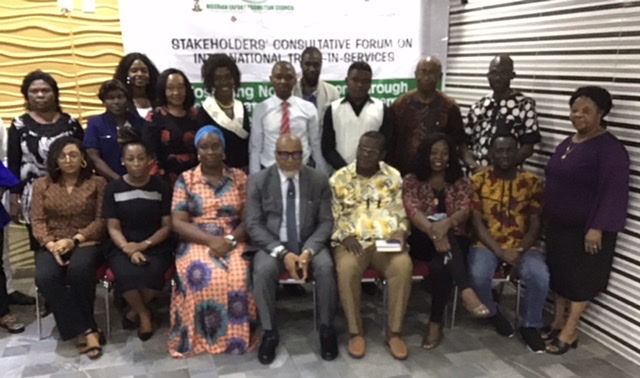
By Our Reporter
Holds consultative forum with startups
The Nigerian Export Promotion Council (NEPC) says it has created the enabling platform for enterprising Nigerians to export service-based products to the global market.
The Executive Director of the council, Mr Olusegun Awolowo disclosed this on Tuesday in Enugu during a ‘Stakeholders’ Consultative Forum on Trade-in-Services in Nigeria’.
Awolowo, who was represented by the South-East Regional Coordinator of NEPC, Mr Arnold Jackson, said that trade-in-services was a trending frontier in the global economy.
He said that the trade-in-services sector was a specialised area that was knowledge based and governed by the General Agreement of Trade-in-Services (GAT) established in 1994.
The executive director, however, said that it was worrisome that Nigeria had no readily accessible and reliable data on trade-in-services.
Awolowo said that the sector had the potential to contribute to the diversification programme of the Federal Government aimed at generating wealth, creating employment and reducing poverty.

In a lecture, Jackson said that the trade-in-sector was transitioning Nigeria’s economy from a resource-based to a knowledge-based entity.
He said that the foregoing had made it necessary for the country to investg in the people in order to increase the competitiveness of the economy.
The regional coordinator said that the coming into effect of the African Free Trade Continental Agreement had opened up the market for exporters to thrive.
He said that growing the sector was indispensable if the Federal Government’s goal of pulling 100 million Nigerians out of poverty in 10 years would be attained.
He said that the digital economy would transform how governments, businesses and citizens interact.
“Digital economy offers Nigeria the opportunity to diversify the economy to create value-added jobs and earn foreign exchange.

“Rapid growth of Information Technology (IT) enabled outsourcing will address various socioeconomic challenges faced by the country, including improved technology transfer and foreign direct investment,” he said.
Jackson, however, said that the perceived negative image of the country and weak outsourcing policies were some of the challenges of the service sector.
He also said that securing financing for the sector was a big challenge because of issues of collateral.
Jackson said that it had become imperative for stakeholders to embark on advocacies for the government to improve internet penetrating considering its impact on the sector.
However, the Convener, Startup South, Mr Uche Anichie, said that startups could overcome the challenges of funding through effective collaboration that would enable them work together.
The theme of the forum was ‘Fostering Non-oil Export through Efficient Data Collection Management in Trade-in-Services in Nigeria’.
